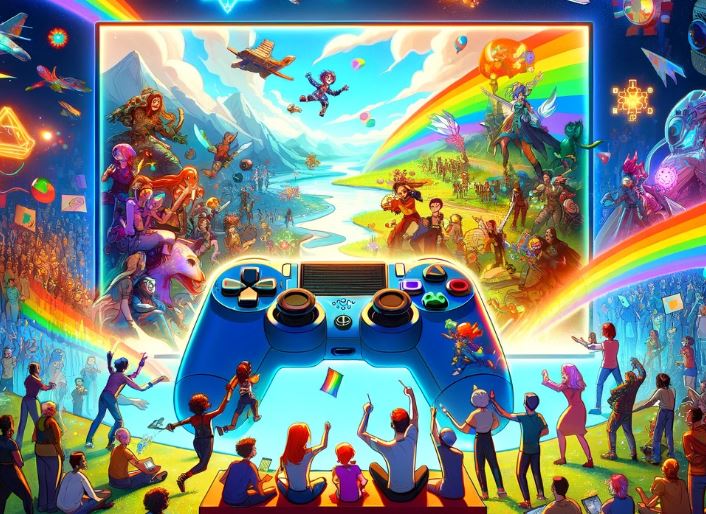The Untapped Potential of LGBTQ+ Gamers in the Video Game Industry
The Overlooked Market: LGBTQ+ Gamers
A recent investigation by GLAAD, the queer media advocacy organization, reveals that nearly one in five gamers identify as part of the LGBTQ+ community. This demographic is more engaged, dedicating more time and funds to gaming than their cisgender and heterosexual counterparts. Yet, a mere 2% of video games feature queer narratives or characters. This disparity highlights a missed opportunity for video game developers to embrace inclusivity and potentially enhance their profits, as well as offer solace to queer individuals in less accepting environments.
The Gap in Representation
GLAAD’s pioneering study on LGBTQ+ presence in video games underscores a significant underrepresentation when compared to other media forms. While only 2% of video games include queer elements, the figure rises to 28.5% for films distributed by major companies in 2022 and 10.6% for LGBTQ+ series regulars in the 2022-2023 prime time television season. This discrepancy suggests a reluctance among game developers to cater to LGBTQ+ audiences, fearing alienation of their traditional base—a concern GLAAD deems unfounded.
Read also : Lady Gaga in Fortnite Concert
The Power of Representation
According to GLAAD’s findings, LGBTQ+ gamers are significantly more likely to purchase or engage with games that feature LGBTQ+ protagonists or inclusive storylines, even if those characters are not playable. About 72% of LGBTQ+ gamers feel a positive impact on their self-perception when they encounter characters that resonate with their gender identity or sexual orientation. Moreover, both LGBTQ+ and non-LGBTQ+ gamers express a desire for more diverse narratives, indicating broader support for inclusivity beyond the LGBTQ+ community.
The Risks of Exclusion
The report also highlights the commercial risks of perpetuating harmful stereotypes or neglecting LGBTQ+ workers. A significant portion of both LGBTQ+ and non-LGBTQ+ gamers would hesitate to support games or companies known for discriminatory practices. Furthermore, LGBTQ+ gamers, seeking refuge from discrimination, often find themselves facing harassment in online gaming spaces, underlining the importance of creating safer and more welcoming environments.
The Call for Equality and Inclusion
GLAAD advocates for equal representation of LGBTQ+ characters in gaming, reflecting the community’s presence within the gaming audience. The organization urges the industry to collaborate with LGBTQ+ content experts and employ queer individuals in leadership roles to cultivate genuinely inclusive content and online communities. Highlighting success stories like “Dragon Age: Inquisition” and “The Last of Us Part II,” GLAAD emphasizes the mutual benefits of diversity for the community and the industry at large.
The Preference for Non-Competitive Gaming
Interestingly, the study notes a preference among LGBTQ+ gamers for single-player and cooperative games over competitive ones, suggesting a desire for narratives and experiences that foster connection and escape over confrontation. This preference further underlines the potential for developers to engage this audience with thoughtful, inclusive content.
In summary, the video game industry stands at a crossroads, with the opportunity to embrace LGBTQ+ gamers fully. By doing so, developers can not only expand their market but also contribute to a more inclusive and accepting gaming culture.














+ There are no comments
Add yours